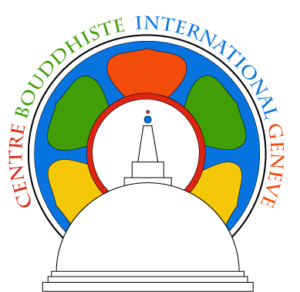Dear Excellencies, Dear Madams and Dear Sirs,
Please allow me to put forth two questions: Firstly, what would happen if we first have compassion and loving kindness towards ourselves before having it towards others? Secondly, what would happen if we first have inner peace, meaning peace within ourselves, before having outer peace?
When we speak about world peace, we always talk about what must be done on the outside and often what others must do in order to have world peace. However, we rarely turn our attention inside ourselves. We always come up with new ideas and new concepts in order to eradicate all the sufferings that we have in our society and our world but we never suggest starting within ourselves so that we can make changes that will resonate in the world. Why don’t we start with changing ourselves, within ourselves first?
If we don’t start with peace within ourselves, how can we ever have peace on the outside, meaning how can we have world peace? When we establish compassion and loving kindness within us, this is the way towards inner peace. Especially by starting to have compassion towards our weaknesses and our failures. When we manage to achieve this, we not only share this with other human beings but also with the animals, our environment and with all the divine beings in the universe. This is the teaching of the Buddha.
You are probably asking yourselves: “How can I achieve this?” Well, we must start by knowing our own nature. By using our concentrated mind or attention, we are able to experience and see our own nature: the nature of the body, the mind, the feelings and the thoughts. Now we have the necessary tools to live with inner peace and in peace with others: our mind is the controller. This is the path towards world peace. This is the Buddha’s advice on establishing and having inner peace so that it can become world peace.
During the Buddha’s 45 years of teaching, he never spoke about Human Rights. He always emphasized the sense of duties. Firstly, the duties towards oneself, meaning having compassion and loving kindness and then our duties towards others. When we demand our rights, it creates aversion. When our demands for our rights are not met, we become angry and then start fighting for our rights. This is the source of dissatisfaction, anger, wars and all the suffering that we have in our world. When we do our duties towards ourselves and towards others, it doesn’t create any aversion. We simply have to take the opportunity to do our duties toward ourselves and toward others in order to safeguard our relationships.
In conclusion, by following the teachings, the advice and the instructions of the Buddha, we can establish com-passion, loving kindness as well as inner peace in order to make them resonate in the whole universe.
World peace comes first and foremost from inner peace. There cannot be world peace if we do not, first, make positive changes within ourselves.
No matter our religion, we can all put into practice the teachings of the Buddha in our daily life. Let’s all work on our inner peace so that we can one day have world peace.
I thank you all for your attention, for listening and for inviting me once again to your Interreligious Service for World Peace.
Ven (Dr) Tawalama Dhammika,
Responsable du Centre bouddhiste International de Genève.
Chef responsable des moines (Sangha nayaka) en Suisse.

